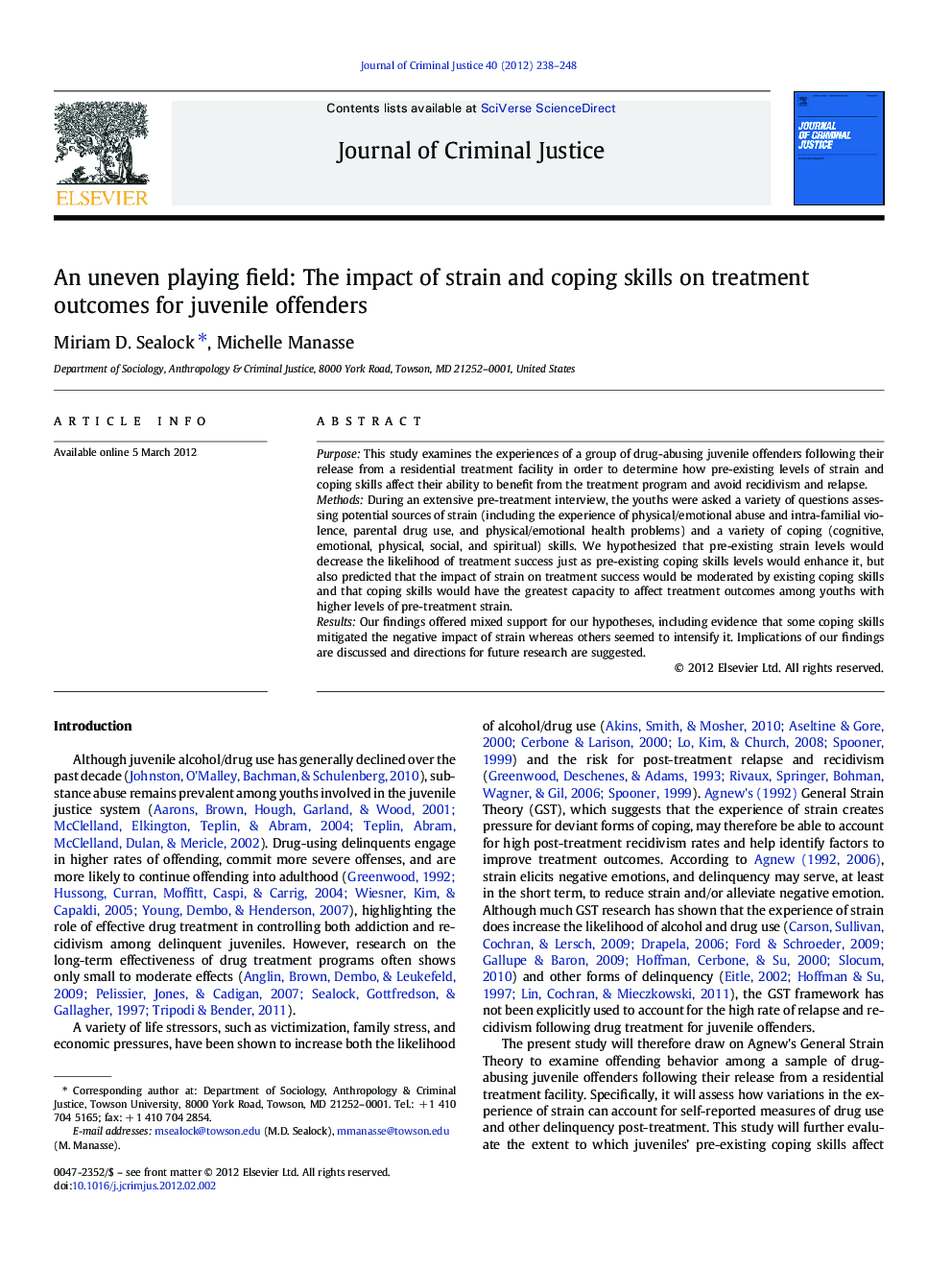| Article ID | Journal | Published Year | Pages | File Type |
|---|---|---|---|---|
| 882872 | Journal of Criminal Justice | 2012 | 11 Pages |
PurposeThis study examines the experiences of a group of drug-abusing juvenile offenders following their release from a residential treatment facility in order to determine how pre-existing levels of strain and coping skills affect their ability to benefit from the treatment program and avoid recidivism and relapse.MethodsDuring an extensive pre-treatment interview, the youths were asked a variety of questions assessing potential sources of strain (including the experience of physical/emotional abuse and intra-familial violence, parental drug use, and physical/emotional health problems) and a variety of coping (cognitive, emotional, physical, social, and spiritual) skills. We hypothesized that pre-existing strain levels would decrease the likelihood of treatment success just as pre-existing coping skills levels would enhance it, but also predicted that the impact of strain on treatment success would be moderated by existing coping skills and that coping skills would have the greatest capacity to affect treatment outcomes among youths with higher levels of pre-treatment strain.ResultsOur findings offered mixed support for our hypotheses, including evidence that some coping skills mitigated the negative impact of strain whereas others seemed to intensify it. Implications of our findings are discussed and directions for future research are suggested.
► General strain theory's relevancy in the context of treatment program success. ► No direct effect of strain on post-treatment delinquency and drug use. ► Social coping skills had a negative direct effect on delinquency. ► Some coping skills mitigated the negative impact of strain and others intensified it. ► Coping skills influenced outcomes differently depending on pre-treatment strain levels.
